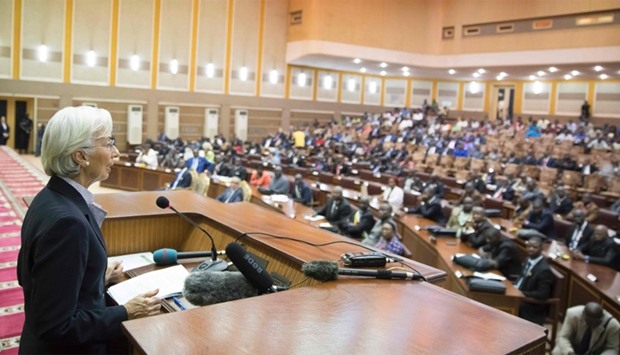The International Monetary Fund and the 19-nation single currency area are battling over debt relief for Greece, and over economic targets required of Athens that the IMF says are not realistic.
The feud has delayed progress of Greece's 86-billion-euro ($92.4 billion) bailout programme and stalled crucial loan payments that Athens will need by this summer to stay financially afloat.
‘March starts a very lengthy political season so February is, if not formally, but realistically the time where one needs to reach political agreement,’ the senior eurozone official said, referring to votes in the Netherlands, France and Germany.
‘Then there is a lengthy period where discussions at expert level could always take place, but quite frankly we are out of a stage when large scale decisions (could) be taken,’ the official said on condition of anonymity.
The IMF, headed by the tough-talking Christine Lagarde, refuses to lend further to Greece without significant changes to the requirements demanded of the Greek government.
- 'Huge delays' -
But Berlin's powerful finance minister Wolfgang Schaeuble will not budge on the matter as key elections approach in Germany and other major member states.
The Netherlands, where bailout fatigue is running high, goes to the polls in March while France will vote in presidential elections in April. Germany, Greece's biggest lender, will hold a general election in September.
The IMF played a major part in two earlier rescues for Greece but baulked at the third in 2015 because it said Athens would never get back on its feet unless its mountain of debt was cut sharply.
Greece's debt totals more than 300 billion euros, equal to 180 percent of total annual economic output and triple the European Union's ceiling of 60 percent.
The official, who was briefing reporters before a meeting of eurozone finance ministers on Thursday, warned of ‘the huge technical difficulties and huge delays’ the exit of the IMF from Greece's bailout would impose.
Athens has strongly suggested that the rescue programme should progress without the IMF, but Germany and other eurozone members believe that the fund provides a rigour that the EU institutions alone would fail to provide.

